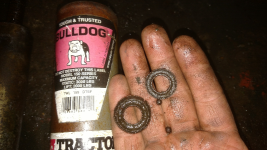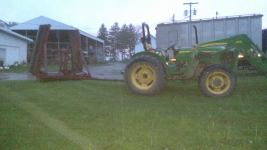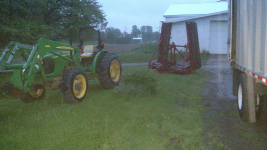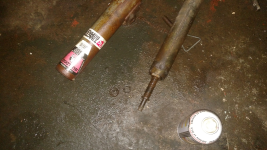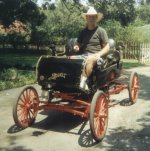Thank you bcp. That 2500# jack will get looked into. The model number leads me to think it is still a bulldog, maybe they don't only build junk. People like you help make forums like this work.
Texas, I would like to apologize for my impolite tone. I'm sure you can teach me many things. The truth hurts that I take such bad care of things.
Hydraulic oil has no detergents. Detergents in motor oil aid in making emulsion and reduce the effectiveness of oil at resisting water. I filled the jack with oil because the company I grew peas for went through a union shutdown, foreign takeover and stopped for three years. Knowing this roller would not be used I tried to "mothball" it. Putting on a brand new jack. Filling with grease would have hydrolocked the jack.
Yes I have buildings. Not enough buildings of sufficient size. I had finished using the roller and it is parked to be washed with the hot water washer behind the door in the background. The rollers will get paint. Everything greased after it dries.
Since you are a maintenance guru, please let me know what you recommend for condensation. We also receive over 40" of precipitation, some as snow. (You hear about the seven feet that hit Western NY in November? We only had two feet here. I moved a bit of snow for the guys who could not pile or blow it any more. ) When you have iron in/under snow and ice and the spring air is trying to melt down the winter, ice will form as the condensed moisture freezes. Concrete floors without insulation under them will sweat into June.
I hope we can get back on a friendly basis.
